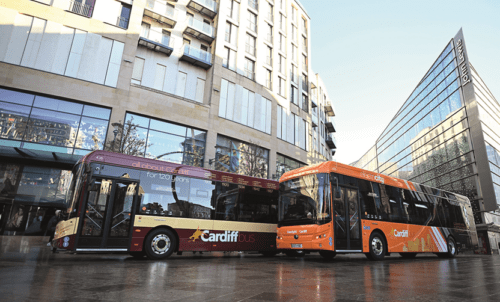
A new report from Zenobē suggests that more is needed to ensure the transition to electric bus fleets runs smoothly and is sustainable. We take a closer look
Founded in 2017 and with claims to around 25% of the UK’s electric bus market share, EV fleet and grid-scale battery storage specialist Zenobē knows a thing or two about charging. The company, which is headquartered in the UK, now employs over 250 full-time staff with skills including electrical engineering, software development, computer sciences and financing. The company has expanded into Europe and Australasia and is expanding into North America, and as well as being the largest e-bus owner in the UK, supports over 2,000 electric vehicles globally. The company has some 735MW of battery storage in operation or under construction, with another 900MW of projects in advanced development in the UK.
A new report commissioned by the company suggests that there may be costly administrative roadblocks ahead which could threaten Britain’s adoption of electric buses. Key points include that the Government’s plans for sustainable public transport are under threat by residual charges which are hitting low carbon bus depots’ bottom lines, whilst there are fears that energy bills for electric bus operators across the country could spike by 500%.
In response, Zenobē has set out its recommendations to revitalise Britain’s bus sector. The business case for bus operators transitioning to electric power is being ‘eroded’ warns the company in its new paper detailing its view of the future for the UK’s electric bus industry. Through its latest report, ‘Charging Forward: How electric bus fleets can energise the UK’s cities,’ the e-bus specialist is calling on the Government to act over the residual charges hitting low carbon bus depots across the UK.
The rising costs stem from Ofgem’s Targeted Charging Review (TCR). Before the introduction of the TCR, transmission charges – costs associated with the bulk transmission of electricity – were solely linked to time of use.
This meant bus operators benefited from charging overnight during low demand periods. However, since the implementation of the TCR in 2023, electric bus operators have been unjustly penalised, says Zenobē.
Research undertaken by the company at three electric bus depots across the country has found that under the TCR, energy bills for EV bus operators across the country could spike by more than 500%. These increased costs damage the case for transitioning to electric power from the outset, the firm warns, despite the benefits that come with making the switch. The benefits, set out in detail in the report, include cleaner air, with 16.4 million fewer tonnes of CO2 expected to be emitted across Great Britain, lower costs (a claimed net saving of £120,000 over 15 years compared with diesel buses), and a boost for local supply chains when the EV batteries are repurposed in a second life.
The Government’s ongoing support for the sector through initiatives such as the recently announced continuation of the bus fare cap in England, but to ensure the business case for electric buses is protected and continues to attract investment into the UK, the Government’s energy and transport strategy needs to be aligned, says Zenobē, which is keen to ensure that bus operators can electrify their fleets at as low a cost as possible.
[…]By subscribing you will benefit from:
- Operator & Supplier Profiles
- Face-to-Face Interviews
- Lastest News
- Test Drives and Reviews
- Legal Updates
- Route Focus
- Industry Insider Opinions
- Passenger Perspective
- Vehicle Launches
- and much more!


